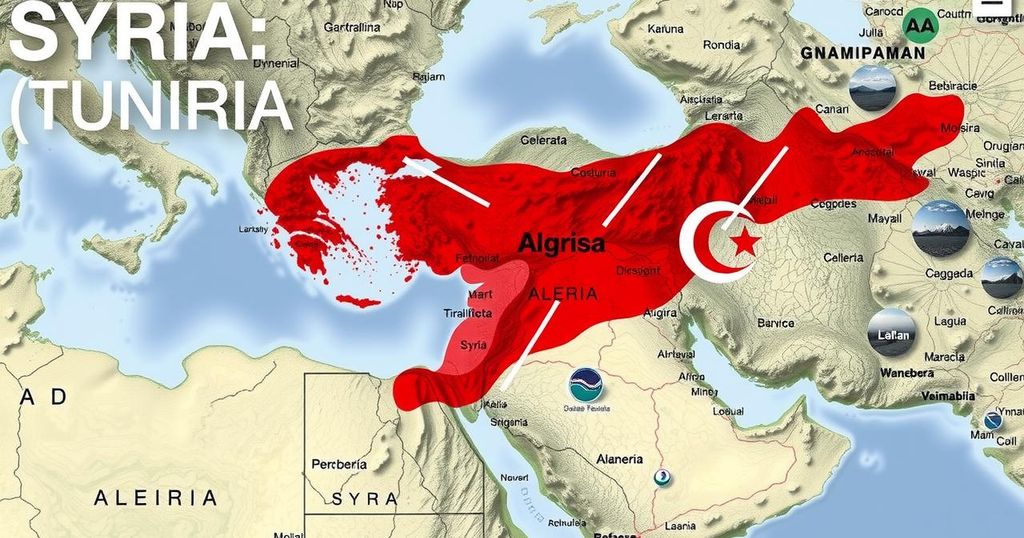The fall of Bashar al-Assad has caused a shift in the positions of Maghreb nations. Algeria initially supported him but has since softened its stance, while Morocco remains critical of Algeria’s support. Tunisia, under President Kais Saied, has pivoted towards strengthening ties. A shared concern exists among these nations regarding the possible return of radicalized individuals from Syria, highlighting the need for enhanced security measures in the region.
The unexpected downfall of Bashar al-Assad has prompted a reassessment of positions among North African nations, particularly Algeria and Tunisia, while Morocco has voiced its dissent. Initially, Algeria expressed unwavering support for Assad, asserting a commitment against perceived terrorist threats; this stance shifted following Assad’s retreat to Moscow. Conversely, Morocco has condemned its neighbor’s support for the Assad regime, highlighting fears of democratic movements in the region. Tunisia, having long-standing ties with Syria, has transitioned to a supportive position under President Kais Saied, who emphasizes non-interference in Syrian affairs. Nonetheless, common regional concerns arise about the potential return of radicalized individuals from Syria, prompting calls for heightened vigilance in border security across the Maghreb.
The geopolitical landscape in the Maghreb region has been significantly influenced by the Syrian crisis and the fall of Bashar al-Assad’s regime. Algeria, Morocco, and Tunisia share a complex history of diplomatic relations and ideological alignments that shape their responses to developments in Syria. Algeria has historically supported Assad, intertwining their national narratives, while Morocco has maintained a critical stance due to historical grievances and regional rivalries. Tunisia’s relationship has fluctuated, reflecting its own political evolution since the Arab Spring, and it has recently sought to restore diplomatic ties amid growing concerns of instability and the repercussions of radicalization in the region.
In conclusion, the response of Maghreb nations to the fall of Bashar al-Assad reveals diverse political positions shaped by historical ties, regional security concerns, and domestic pressures for democratic governance. While Algeria and Tunisia have modified their rhetoric in light of recent events, Morocco remains resolute in its opposition. The overarching challenge for all three countries lies in managing the potential security threats posed by the return of radicalized nationals from Syria, necessitating a collaborative approach to ensure regional stability.
Original Source: www.middleeasteye.net







